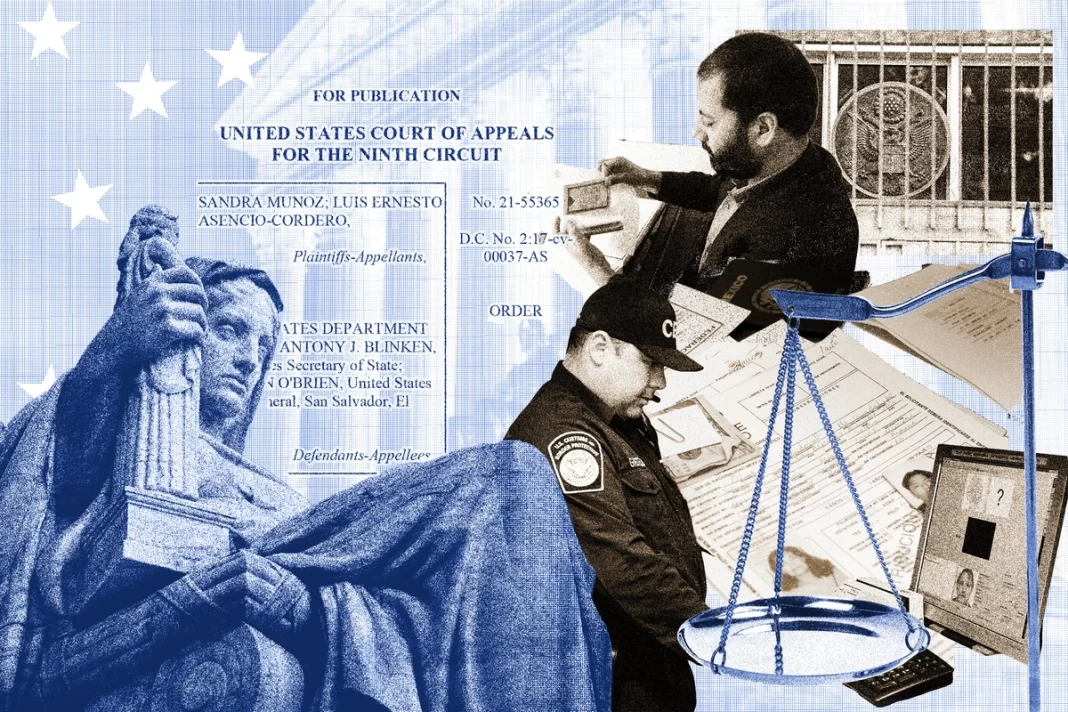
The justices will consider if tattoos thought to be associated with MS-13 are grounds for a consular officer to refuse a visa to a U.S. citizen’s husband.
A complex upcoming Supreme Court case could weaken a key tool the government uses in immigration law enforcement and throw the system into chaos, legal sources say.
The case at hand deals with the doctrine of “consular nonreviewability,” which is the legal principle that a consular official’s decision to refuse a visa to a foreigner is not subject to judicial review.
Cracking down on the doctrine would harm the immigration system and cripple its ability to conduct business, supporters of the nonreviewability principle say. Opponents, such as those who favor expanded immigration, say relaxing it respects constitutional rights and the institution of marriage.
The doctrine is a judge-made exception to the Administrative Procedure Act (APA), a federal statute enacted in 1946 that governs administrative law procedures for federal executive departments and independent agencies. The late U.S. Sen. Pat McCarran (D-Nev.) said the APA was “a bill of rights for the hundreds of thousands of Americans whose affairs are controlled or regulated in one way or another by agencies of the federal government.”
Decisions about who gets to enter the United States are vested in the legislative and the executive branches, not the judicial branch.
The U.S. Constitution gives Congress exclusive authority to create policies about the admissibility of individuals to the United States. At the same time, the legislative branch delegates the power to implement those policies to the executive branch.
On April 23, the Supreme Court will hear Department of State v. Munoz, which concerns spousal sponsorship.
Facts of the Case
Foreign citizens have minimal rights in the immigration process, so the Supreme Court is expected to focus on whether U.S. citizens have a constitutionally protected interest in visa petitions sponsoring their spouses.
The case is about Luis Asencio-Cordero, a Salvadoran citizen with no criminal record whose U.S. immigration visa was denied because a consular officer thought his tattoos indicated gang membership. His wife, U.S. citizen Sandra Munoz, challenged the consular decision in court, arguing that her rights as a citizen were violated.
The case goes back to 2005 when Mr. Asencio-Cordero first arrived in the United States. Ms. Munoz married him in 2010 and they had a child together who is a U.S. citizen. The husband was in the country illegally.







